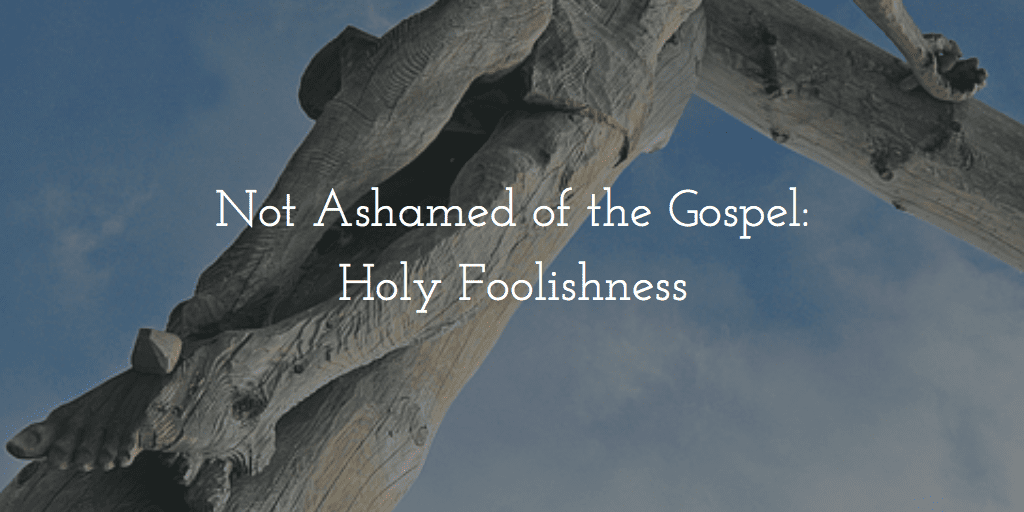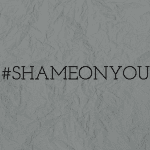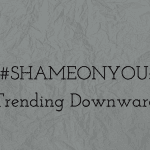 Justine Sacco chuckles to herself as she fires off what she considers a silly tweet to her 170 Twitter followers while boards the plane in Heathrow on the final leg of her trip to South Africa.
Justine Sacco chuckles to herself as she fires off what she considers a silly tweet to her 170 Twitter followers while boards the plane in Heathrow on the final leg of her trip to South Africa.
“Headed to Africa. Hope I don’t get AIDS. Just Kidding. I’m white!”
When she landed, she learned that she had become an international news sensation…and not in a good way.
Her ill-advised tweet had been retweeted thousands of times, making her the #1 trending topic on Twitter. CNN was doing a live update on the location of her plane, people were calling on her to lose her job (which she did), the family she was going to visit in Africa wanted her to leave as soon as she landed because of the shame she had brought on them. To this day, she can no longer go on dates, because in her words “all someone has to do is Google my name.”
In an effort to make the world a less cruel place, it seems that we, the internet did the opposite. Yes, Sacco did something incredibly stupid and made a public, racist joke that she thought was going to be seen as too ludicrous to be taken as serious. And now her thoughtlessness will cost her for the rest of her life.
Shame On You
Last year I read an article about Kylie Jenner (of the Kardashians) where she said the first thing she does every day when she wakes up is check the internet for her name, because her greatest fear is that someone said something bad about he on the internet.
My first thought was, C’mon. This is the internet…and you’re a Kardashian!
But think about this, she’s got what we all think we want, fame, money, recognition, she’s got it all, and yet she’s terrified.
There’s a theologian named Paul Tillich who points out that for the longest time people were mostly concerned with guilt, then we were concerned with the fear of death, but today our overwhelming concern is with the fear of shame.
We’re worried that people will find out where we don’t measure up, and point it out to others. We’re terrified that one day we will be found out, shamed and dismissed by society.
Shame is that emotion we all know well, it’s what you feel when you see them look at you across the room and whisper and laugh.
It’s what you feel when they find your browser history, or they say that passive aggressive thing on social media where they don’t mention your name, but everybody knows it’s about you.
Or when the teacher sends that email reminding all the parents to make sure your kids don’t do this, but you and everyone else know your kids were the only ones who did it in the first place. Or when the bully keeps pointing out the ways that you don’t fit in…or when the world finds out that you were the bully.
Last year, I spent a few months with some other people reading the greatest hits from the best Christian thinkers throughout the centuries. People like St. Teresa of Avila or Jullian of Norwich. And one of the things that impressed me the most about these saints is that you couldn’t hurt them.
If you tried to insult them or shame them, they would praise God saying ridiculous sounding things like, “We’re getting share in the sufferings of Jesus”
And in those moments, they wouldn’t get defensive, they wouldn’t hire PR spin doctors, they would just let the attacks come, because in those places they would sense the solidarity of God.
What do you do with people like that?
The Cross as Scandal
It might be helpful to remember that the Cross functioned primarily as a tool of shaming, in a culture that ran on honor and shame.
Too often, Christians today are fooled into thinking of we’re just one of the world religions, without realizing that the central claim of Christianity is oddly irreligious at its core.
Religion is a set of beliefs projected out of humanity’s needs, wishes, longings, and fears.
Religious people imagine uplifting things that give you goose bumps and feel awe, not this.
And because we’re so familiar with it, we have to use our imagination to understand just how shameful the cross was.
These days when we think of the cross we think of blood and violence, and it was that. But did you know that the New Testament pays almost no attention to the physical parts of crucifixion. Instead, it focuses on shame, contempt and mockery.
The early church was a community centered around a God who had been publicly shamed, and for the next few hundred years, before Constantine, this was the thing that people on the outside of Christianity kept pointing out.
In the early-fourth-century Christian apologist Lactantius:
“[Pagans] cast in our teeth the suffering of Jesus because they say ‘we worship a man who was visited and tormented with remarkable punishment.'”
But these days we aren’t ashamed of the Cross, because we forgot that we should be ashamed of it.
Instead we are often embarrassed by the quaintness of the Christian tradition, and we try really hard to avoid anything embarrassing about the way of Jesus.
Christian subculture uses words like Relevant a lot, and I get why, it’s important to translate the Gospel to each context. But I often wonder if the impulse behind our desire to be relevant is more a desire to not be embarrassed by what we say we believe.
So we have skinny jeans pastors with Hillsong haircuts to pretend like this Christian thing is a totally normally thing to believe in.
We try and pretend as if lots of gods die naked, publically on a cross.
But Jesus death was the height of irreverence. Jesus was killed by the most progressive society of his day. He was killed by the best religious people of his day.
We read the New Testament writers talking about how they are not ashamed of the Gospel, and we forget to ask the question…”Why would they need to say that?” When Paul writes this disclaimers to the Romans, he assumes they know why, after all the Cross was a Roman idea.
But when he writes it to the Corinthians he gives them some more explanation:
For the message of the cross is foolishness to those who are perishing, but to us who are being saved it is the power of God….God chose the foolish things of the world to shame the wise; God chose the weak things of the world to shame the strong. God chose the lowly things of this world and the despised things—and the things that are not—to nullify the things that are, so that no one may boast before him.
I want to write more on how Jesus did this next, but for now, one of the least talked about implications of Jesus’ death, I think, is one of the ones that speaks the most clearly to the world we all live in today.
We’re terrified of being shamed.
But, according to Paul, the Cross has turned upside down our greatest fears. It is God entering into not just death, but shame, and destroying it’s power, redeeming even those moments that we wish we could erase.
It is in the words of Paul, God’s Holy foolishness.











